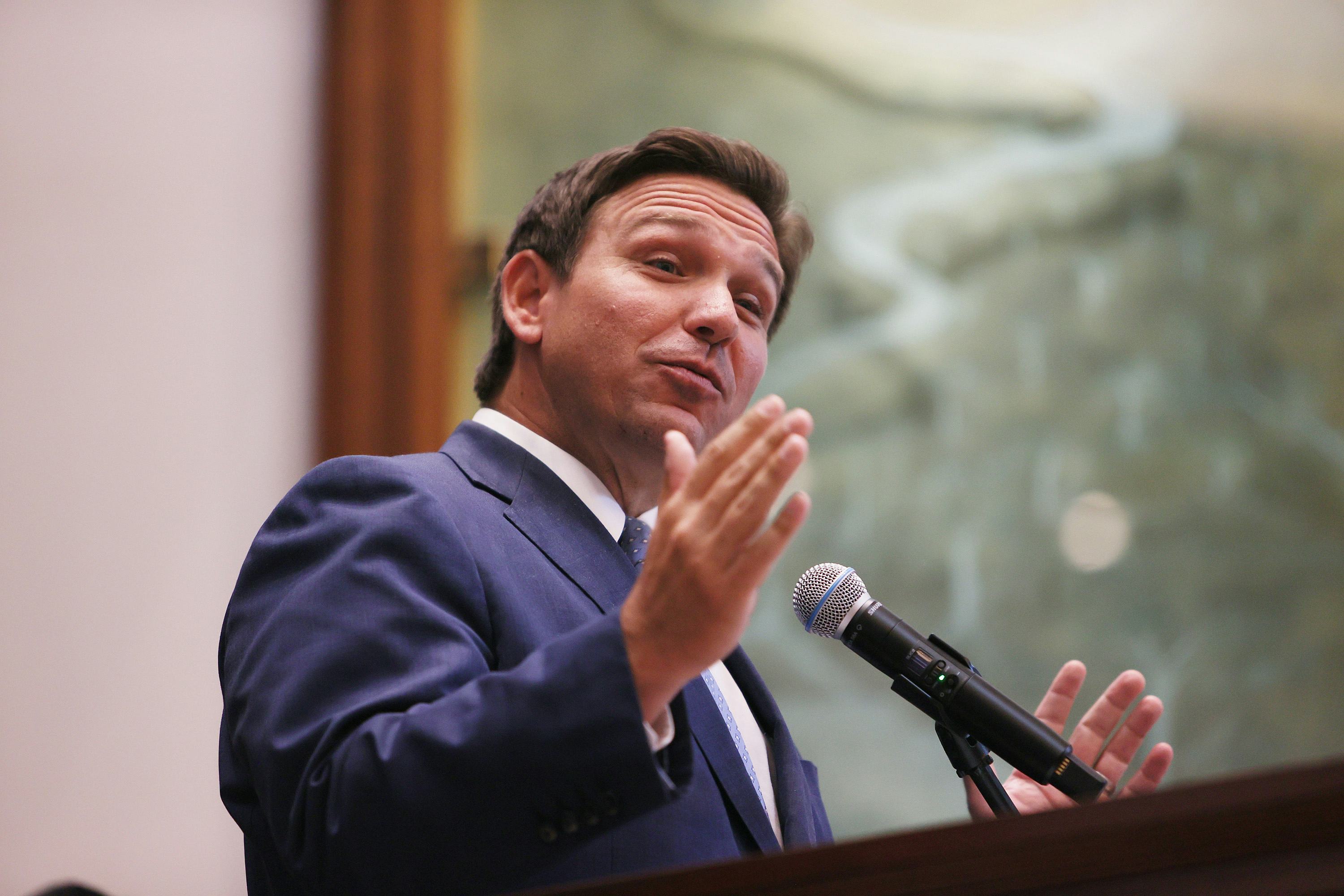
Conservatives around the country are in the midst of a full-blown freak out over the horrifying specter of Critical Race Theory — a very specific, well-defined area of academic focus that Republicans can't actually identify when asked. That the right-wing has rallied around a cause they, themselves, have stripped of meaning and contest only due to the same structural racism CRT seeks to explore is perhaps unsurprising — this is, after all, largely what conservative culture wars are all about. What is surprising, however, is the speed at which Republican lawmakers have transformed inchoate shouting into actionable legislation.
Take, for instance, Florida — a state that under Republican Gov. Ron DeSantis has positioned itself as the vanguard of second-stage Trumpism. On Tuesday, DeSantis signed into law HB233, a bill which:
prohibits State Board of Education and BOG from shielding students, staff, and faculty from certain speech; requires State Board of Education to conduct annual assessment on intellectual freedom and viewpoint diversity; creates a cause of action for recording or publication of certain video or audio recordings; revises provisions related to protected expressive activity, university student governments, and codes of conduct.
Crucially, the text of the bill further explains that second clause. Emphasis mine:
The State Board of Education shall select or create an objective, nonpartisan, and statistically valid survey to be used by each institution which considers the extent to which competing ideas and perspectives are presented and members of the college community, including students, faculty, and staff, feel free to express their beliefs and viewpoints on campus and in the classroom. The State Board of Education shall annually compile and publish the assessments by Sept. 1 of each year, beginning on Sept. 1, 2022.
In other words, it seems as if universities will soon be required by law to poll everyone from professors to students to maintenance workers about their political beliefs. And should the state find a school not fostering the appropriate amount of "competing ideas and perspectives," the institution could end up losing its funding.
"That's not worth tax dollars," DeSantis said at a press conference accompanying the bill signing. "That's not something that we're going to be supporting moving forward."
But let's be clear here, this ostensible effort to create a "safe space" (as it were) for differing ideas is simply the latest effort by conservatives to obfuscate their real intention: imposing their own partisan limits on educational institutions in order to dilute efforts to explore America's history of racism and structural inequality. DeSantis's bill belongs in the same category as those in multiple states seeking to ban the teaching of The New York Times's Pulitzer Prize-winning 1619 Project, or to ban the study of the same Critical Race Theory most Republican lawmakers can't actually define.
"Aha!" this bill risks saying. "A University of Miami freshman who wants write a paper on why the virtuous Confederate South was right to fight for maintaining slavery should be embraced, and the school should be punished if the student feels like their ode to racism is being discouraged in any way." The goal, in other words, clearly seems to be not to carve out more room for educational freedoms, but to crowd out educational avenues DeSantis and his ilk don't like.
"It used to be thought that a university campus was a place where you’d be exposed to a lot of different ideas,” DeSantis insisted during his press conference. “Unfortunately, now the norm is, these are more intellectually repressive environments. You have orthodoxies that are promoted, and other viewpoints are shunned or even suppressed." Given DeSantis's own, uh, interesting history, however, that doesn't necessarily seem like such a bad thing.







